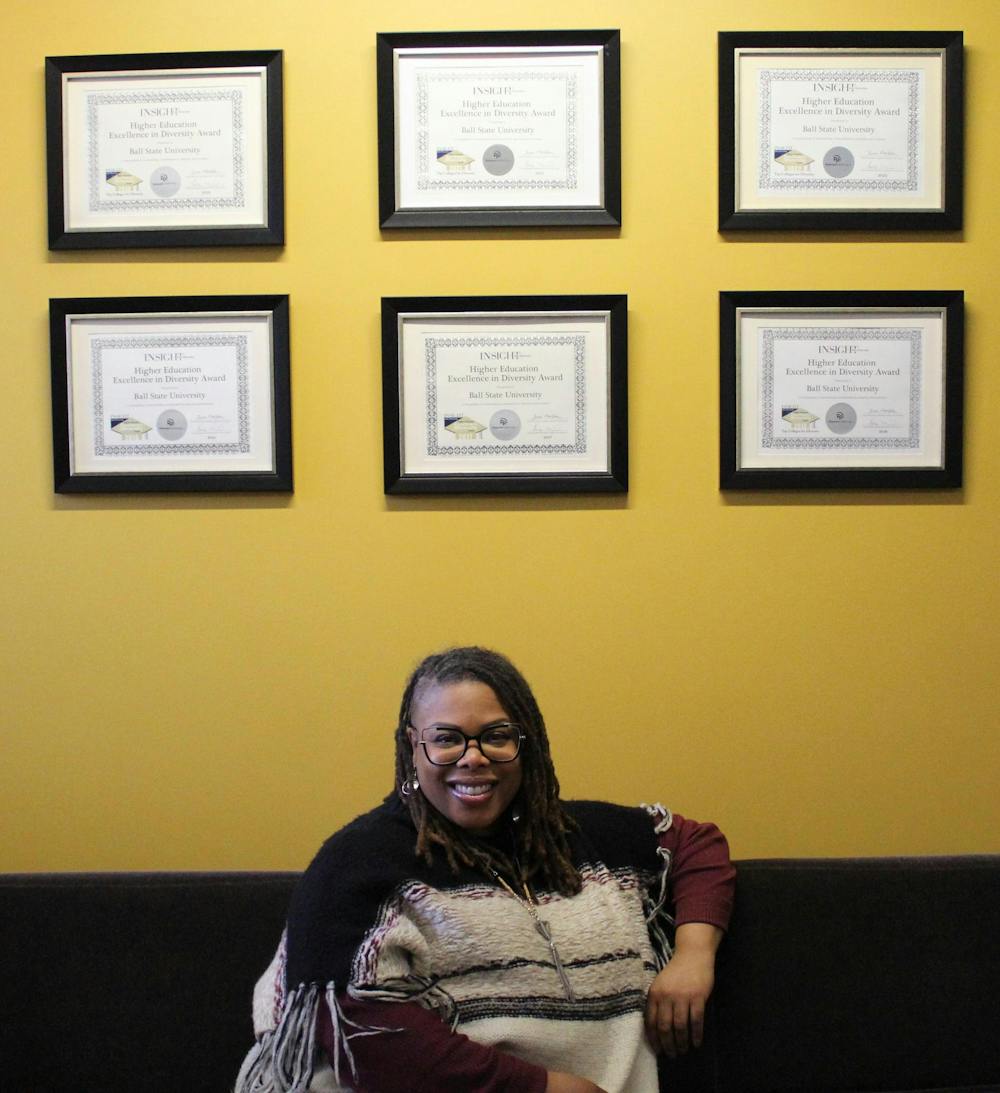Distinguished again for its unwavering commitment to diversity and inclusion, Ball State University has claimed the Higher Education Excellence in Diversity (HEED) Award for the eighth consecutive year. The university's dedication earned a spot in the November/December 2023 issue of INSIGHT Into Diversity alongside 108 other institutions.
Rashida Willard, associate vice president of inclusive excellence at Ball State, emphasized the importance of the award to Ball State, as it recognizes significant institutions within the United States working to improve their daily diversity, equity and inclusion (DEI) efforts.
“I believe that we won the award for the eighth year in a row because we have consistently demonstrated that we have an institutional commitment to diversity, equity and inclusive excellence,” Willard said. “And I think it's shown in the initiatives and programs that we put out every year.”
Willard credits the university's efforts in achieving this award to supporting students, citing increased usage in learning centers, the opening of the Cardinal Central location at the L.A. Pittenger Student Center, and the addition of proactive advising and student success coaching.
Charlene Alexander, chief strategy officer at Ball State, further reflected on the university's journey to get to this point.
"In 2016, I submitted our first application for the HEED award, and I am thrilled that we have continued to receive that recognition every year since,” Alexander said via email.
These continuous efforts to go through the application process for the award each year underscores the university's unwavering commitment to fostering a campus environment that values diversity and actively celebrates it.
Alexander shed more light on the initiatives contributing to the university's success in fostering inclusivity, including the Diversity Associates Program and the Pathways program, celebrating faculty research publications and inviting faculty as fellows to advance research.
“We engaged the National Center for Faculty Development and Diversity (NCFDD) to provide support for the writing goals of faculty and graduate students. Recent efforts also include the implementation of Student Success Coaching in University College,” Alexander said via email. “This has proven to increase students’ GPA and overall success when students participate in at least two coaching appointments during the year.”
Another more significant initiative to help foster inclusivity on campus is the Faculty Mentorship Program (FMP), a collaboration between Disability Services and faculty members that connects new students with disabilities with a faculty mentor in their major. According to Alexander, this program continues to receive national attention, with 31 new students matched with mentors this year, bringing the total served to 602 in its 15 years of existence.
Student involvement is also crucial to Ball State's commitment to diversity and inclusion. According to Willard, the Student Anti-Racism and Intersectionality Advisory Council and various leadership advisory councils and affinity groups actively build awareness and foster a sense of community.

An integral aspect of Ball State's commitment to diversity and inclusion is measuring the impact and progress of these initiatives and efforts that have been executed.
According to Alexander, the Office of the Chief Strategy Officer prioritizes this by describing Priorities for Action (PFAs) aligned with Ball State’s institutional Strategic Plan. These PFAs include specific action steps, success metrics, and individual responsibilities
“Each unit provides a description of how they intend to measure their success and impact for each PFA, they identify the individual(s) who are responsible for advancing each PFA and the results and accomplishments achieved annually,” Alexander said via email. “These results and metrics are shared with university leadership on an annual basis.”
In addressing challenges, Willard emphasized pushing through potential barriers, ensuring all community members feel a sense of belonging and inclusion.
“The obvious thing is…there's always…potential legislation or something that could come through to stop DEI efforts. But I think the commitment is very strong here at Ball State. And so…our job is to ensure…that everybody feels welcome and included in either their workplace or the classroom, whatever that looks like in their educational experience,” Willard said. “And so I just think that we push through, even with that potential barrier, and making sure that everyone knows that our work impacts all people.”
Emilie Allen, a second-year economics major and a student with a disability, said Ball State being awarded the HEED Award makes sense.
"I've always felt at home here, and I've never felt excluded for being Deaf or for any other reason," Allen said.
She said she sees the HEED Award as representing the collective efforts within Ball State to improve diversity and inclusion, citing examples of proactive work within clubs like the Honors College organizing cross-cultural discussions.
Alexander credits this achievement to the Office of Inclusive Excellence and the leadership at Ball State in advancing inclusive excellence, emphasizing the importance of celebrating these achievements at a national level. She urges students, alums, and the broader Muncie community alike to support these ongoing efforts by following Ball State's Beneficence Pledge, specifically the commitment to valuing the intrinsic worth of every community member and respecting differences in people's ideas and opinions.
“Looking ahead, we're going to be looking to implement strategies and…measure strategies that might improve the campus climate and help folks feel like they belong here on campus,” Willard said. “[We’ll be] working with connecting groups on campus who are leading the work of inclusive excellence so that we can connect and share strategies for improving…their inclusive excellence plans.”
Contact Meghan Braddy with comments via email at meghan.braddy@bsu.edu or on X @meghan_braddy.





